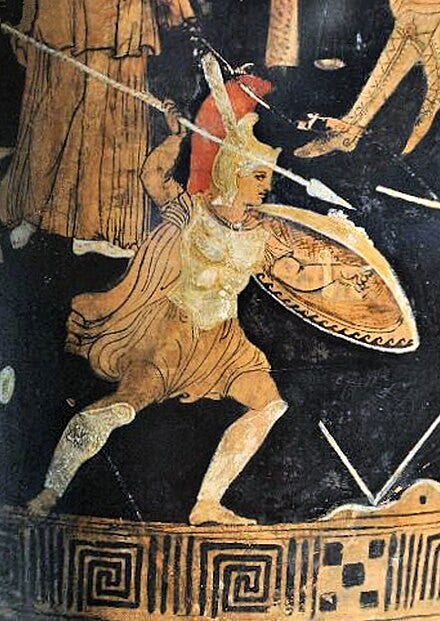I live on the border between Life and Death. If you find that claim melodramatic, please read my post, Three Months from Hell.
During my tempus ab inferno, I lost substantial parts of my life. You take for granted that your body will regulate itself; this frees you to live your life. My body no longer self-regulates, and I do not have this freedom.
I can speak, but the pressure of my tumour on my tongue means that I cannot articulate words. I am essentially mute and communicate by texting or writing on pads of paper.
I can’t eat food, mainly because the tumour blocks most of my throat. For weeks, I had been emulsifying my food. However, trying to drink my meals led to coughing fits. The coughing caused me to aspirate drops of food into my lungs, and that aspiration led to pneumonia. So, I now ‘feed’ through a tube that pumps a liquid nutrition product directly into my stomach.
For no reason that I can understand, I lost my ability to pee normally. I now have a Foley catheter that collects my urine in a large drainage bag.
I also must manage my defecation. I take large doses of opiate-based pain medications that, left to themselves, induce immediate rock-hard constipation. So, I must manage a counteracting daily laxative schedule. And, yes, it’s easy to under- or overdose with laxatives, with disastrous results.
This essay is not a lament. I survived these months of Hell thanks to the skill and dedication of nurses, doctors, and my wife. I am grateful to all for their care.
Moreover, I hope to continue in the Phase 1 immunotherapy trial. I may respond well to the experimental medication and get some additional months of life.
But seriously, it’s time to think through when and how I want to die.
Disney presents Death as part of a “Circle of Life,” a kindly, natural process.
The Biblical view—and my view—is that Death is our foremost enemy:
Like a roaring lion your adversary the devil prowls around, looking for someone to devour. (1 Peter 5:8).
We have to die, but we have choices about when and how.
First, do we let Death choose the time, or do we choose it?
Near the end of her life, my mother wanted to choose to die but never had the opportunity. She had outlived my father and all her friends and had no purpose left for being alive.
One afternoon, I sat with her on the balcony of her condo. She took a pain pill, then pointed to a bottle of Chablis and asked me to pour her a glass. I asked, “Are you sure about that?” She gave me a cold stare and asked, “And your point is?”
Choosing to die by suicide has historically been a risky choice. A handgun will get the job done, but the result will be traumatic for your friends and family. Otherwise, it’s possible to try to kill yourself and fail.
This situation is changing: you can have a physician assist you in killing yourself. Although advocates pretend otherwise, Canada is moving toward medically assisted euthanasia on demand. Many jurisdictions will follow this path.
The alternative to deciding for yourself when and how you will die is to let Death take you when Death sees fit. I call this a Violent Death. Is this a choice or a disaster?
After the defeat of France in 1940, fleeing down roads strafed by Stukas, Simone Weil wrote an essay on The Iliad about how Death reduces humans to objects. Weil presented the supreme warrior Achilles as the avatar of Death.
Seeking vengeance for the death of his friend Patroclus, Achilles slaughters every Trojan he encounters. A Greek warrior would often capture an opponent and ransom him back to his family.
But Achilles falls on the Trojan Lycaon, a son of King Priam, like an eagle on a rabbit. Taken by surprise, Lycaon pleads for his life.
Lycaon clutched Achilles with one hand, and with the other, clutched the pointed spear and would not let it go. He spoke winged words. “Achilles, please, I beg you by your knees to pity me, do right by me, and spare me.”1
Achilles offers Lycaon only contempt.
The answer [Lycaon] received was far from gentle. “Fool, do not talk to me of ransom. Hush! Before Patroclus died and met his fate, I was a little more inclined to spare the Trojans. I took many of them prisoner and sold them off alive as slaves. But now, no Trojan will escape from death... So die, my friend. Why are you so upset? Patroclus has already died as well, and he was far superior to you.
That was it for Lycaon.
[Then] Achilles drew his sharpened sword and struck [Lycaon’s] neck above the collarbone and drove the two-edged blade in all the way. [Lycaon] lay stretched out face-down upon the ground. Black blood dripped out of him and wet the earth. Achilles grabbed him by his foot and threw him into the river to be swept away.
Weil argued that Death has no consideration for who you are or what you have been. It transforms you from a living being to inert matter.
There is little to be said for suicide, but at least it preserves human agency.
These battlefield deaths may seem exotic, but that’s how my father died. He was playing golf on his favourite course. He drove his ball to within a few feet of the pin on a par 3 hole. He walked up to make his putt, collapsed, and died. I used to think that Dad had an ideal death. But was it? His agony was brief but likely intense.
Skillful palliative care offers a third way to die: palliative death. Death sets the time of the end of life, but we remove the suffering of dying. In a palliative care protocol, your palliative caregiver gives you sufficient medication to keep you comfortable. The patient will likely be unconscious when Death occurs.
This is how I hope to die. I plan to be with my family and keep writing as long as possible. When I can’t do that, I hope that the excellent palliative care clinicians I am working with can help me to find a gentle death.
Why doesn’t everyone choose a palliative death? I see three reasons.
Many people fear, with reason, that as they lose their cognitive capacities, they will lose the ability to control the circumstances of their dying. Family members may be unaware of the patient’s preferences, or they may disregard them. The family may have a vain hope for a cure; the patient ends up tied to a ventilator.
Few patients seem to understand that a gentle, palliative death is possible.
We do not have enough high-quality palliative care clinicians for everyone to access the service.
This is Emily Wilson’s superb new translation of The Iliad.












The way of Love is not a subtle argument.
The door there is devastation.
Birds make great sky-circles of their freedom.
How do they learn this?
They fall.
And falling, they're given wings.
Rumi, translated by Coleman Barks
Thank you, Bill. Your writing on your journey, as always, is compelling.